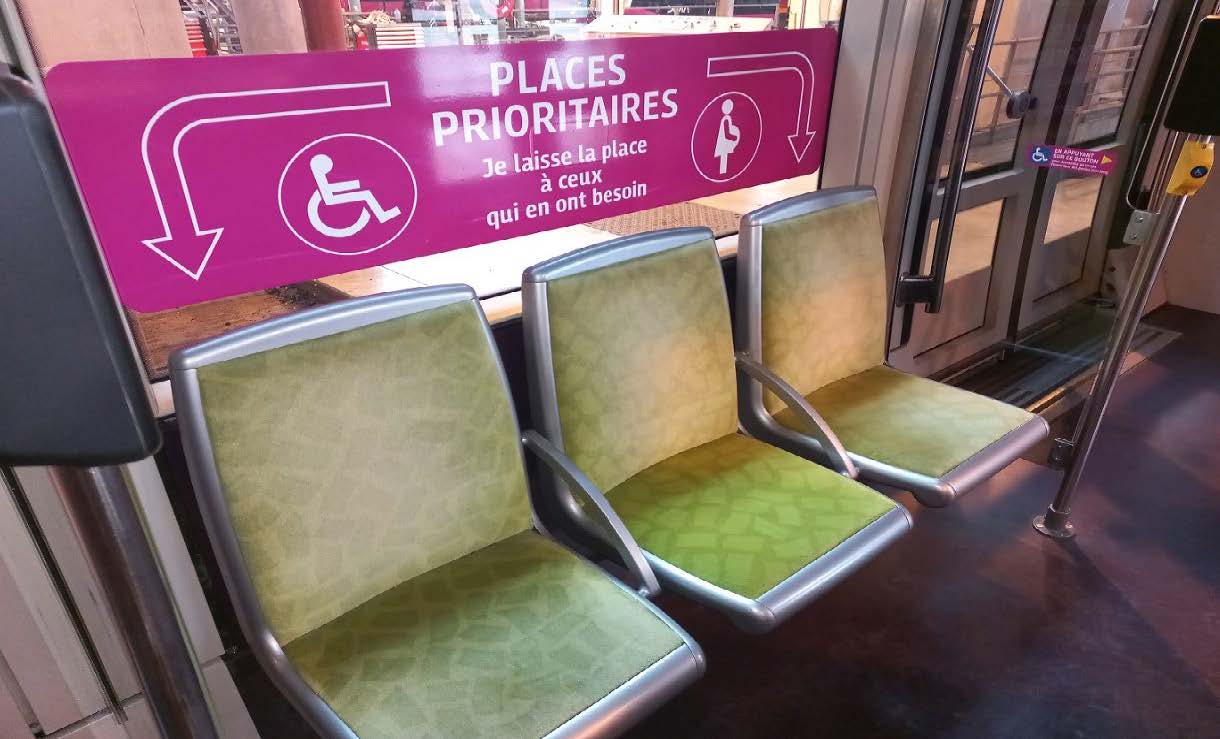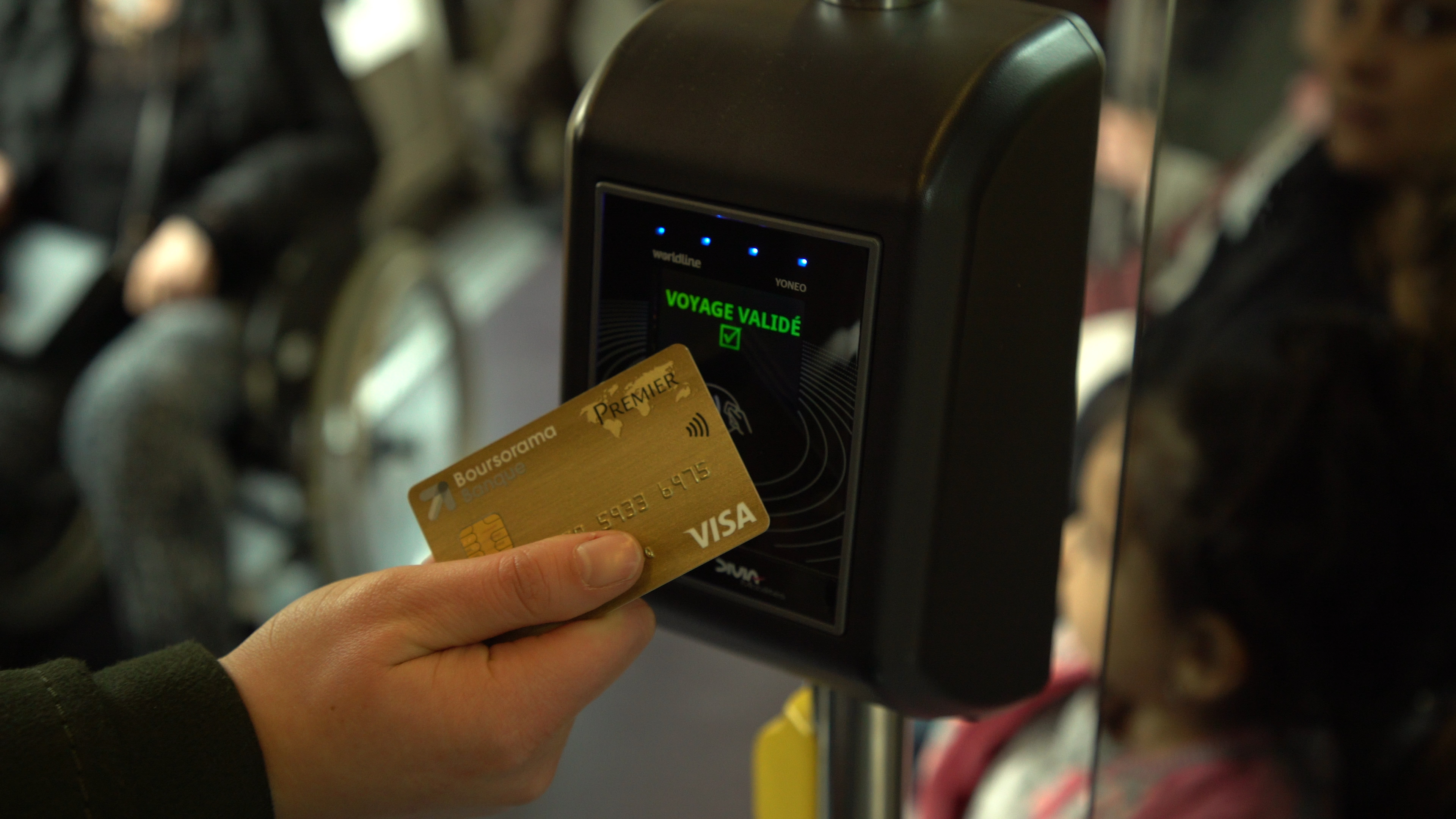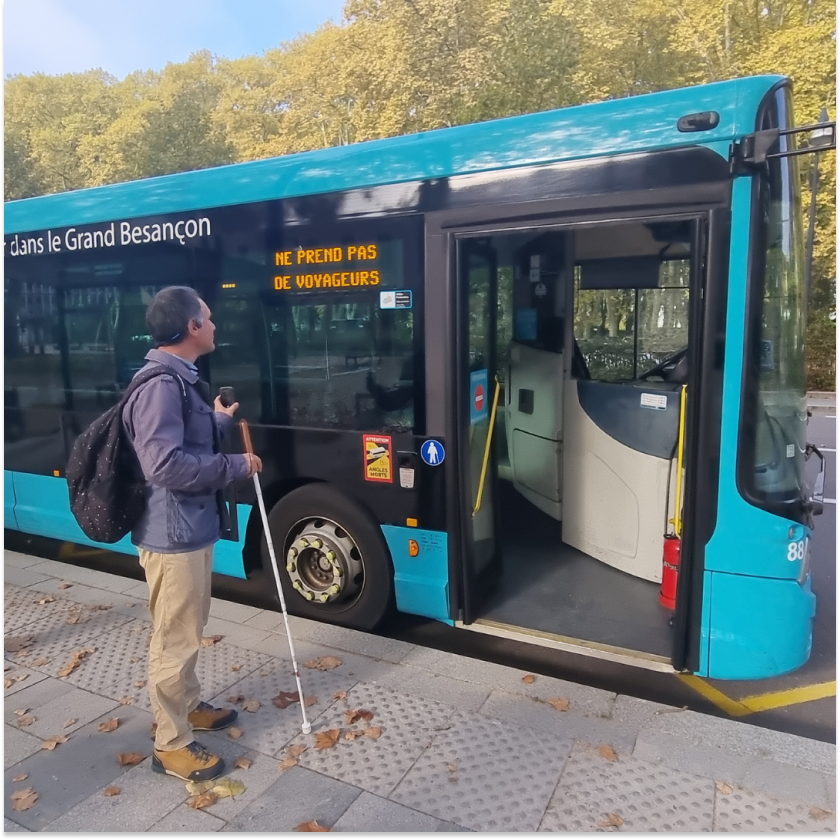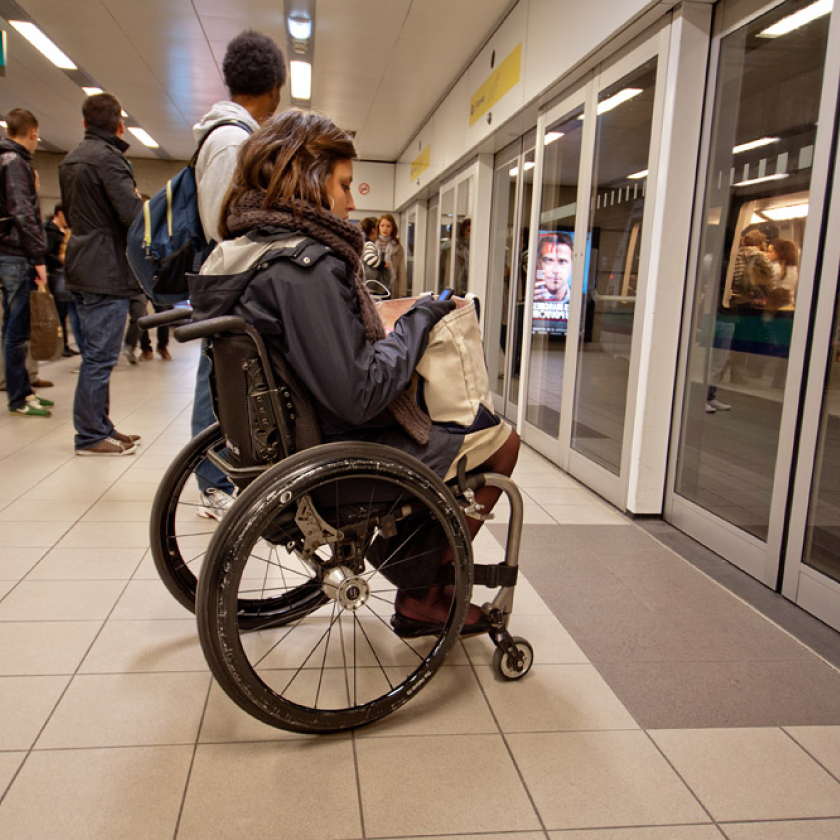For Keolis, open innovation is a strategic lever for more inclusive mobility. By mobilizing a wide local network – passengers, citizens, people with reduced mobility (PRM), associations, startups and transport authorities – the Group develops concrete solutions for accessible mobility adapted to the realities of each region. This collaborative approach makes it possible to test, adjust and deploy mobility innovations capable of lifting barriers and meeting the specific needs of each user.
Making transport accessible to all: inclusive mobility at the heart of innovation
At any moment, a traveler may encounter difficulties when traveling. Whether it's a permanent disability, a temporary state of vulnerability (fatigue, injury, illness, etc.) or simply an uncomfortable situation (luggage, stroller, etc.), these situations can create several barriers for travelers and can generate anxiety during a trip.
Reducing this anxiety means concretely improving the mobility experience for all, while strengthening a region's dynamism and mobility rate. By removing the barriers to mobility – lack of information, uncertainty about the environment, difficult access, etc. – we make it easier for everyone to get around more freely and access services or activities that were previously inaccessible.
Committed to inclusive mobility, Keolis is taking action to remove these barriers and make travel easier for everyone, especially people with reduced mobility. Through its “Unik” approach, the Group offers adapted services and support throughout each passenger's journey. The aim is to guarantee better accessibility to transport, while taking into account the wide variety of circumstances facing travelers.
Keolis designs personalized services and works with local authorities to develop concrete solutions to improve accessibility. By integrating innovations in the service of mobility, Keolis anticipates future uses and builds simpler, more seamless and more personalized public transport for all.
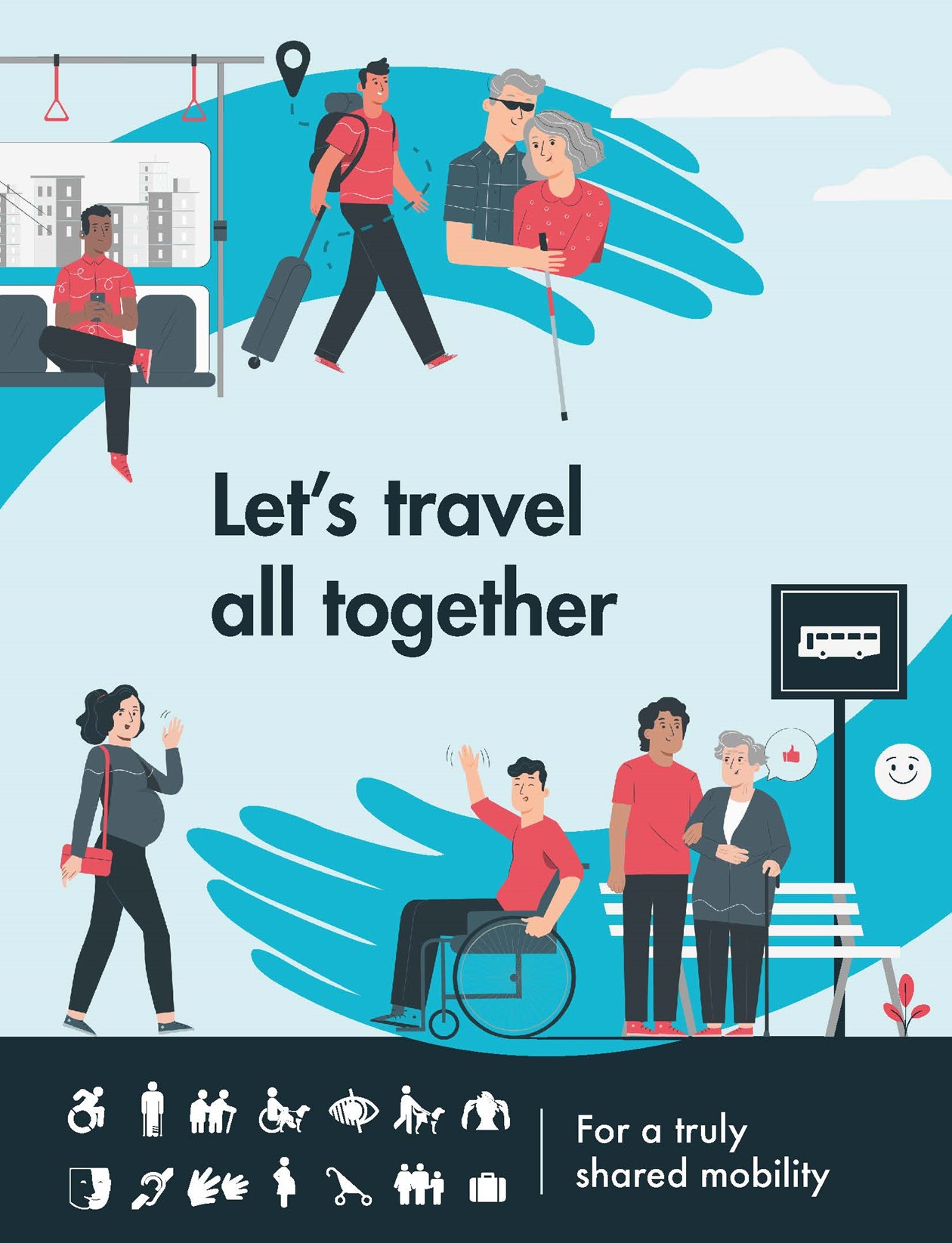
80%
of disabilities are considered “invisible”, or not outwardly apparent, in France, affecting almost 10 million people. Source: Invisible disabilities, Ministry of Agriculture and Food Sovereignty, February 2025.
16%
of the world's population lives with a significant disability, or around 1.3 billion people (1 in 6). Source: Disability, World Health Organization, March 2023.
1 in 4 adults
adults in the European Union has some form of disability, or around 101 million people. Source: Disability in the EU: facts and figures, European Council and Council of the European Union, February 2025).
12 million
people in the 15-64 age bracket live with a disability in France. Source: Key figures on disability policy in civil service, Ministry of Public Action, Civil Service and Simplification, January 2023.
7.6 million people
aged 15 or over and living at home reported having a disability in 2021. Source: Studies and Results, DREES, February 2023, no. 1254.
A more seamless trip for all: when accessibility means peace of mind
Keolis implements concrete measures to improve comfort and reassure passengers in their daily transport:
– In Dijon, an inclusive “hypersign” system was installed in streetcars to highlight priority seats. This nudge-type device, co-constructed with Dijon Métropole, reminds all passengers of the importance of these seats. The result: a clear improvement in comfort and courtesy perceived by relevant passengers (PRMs, senior citizens, pregnant women, etc.).
– In Caen, Keolis has deployed several solutions to meet the expectations expressed by people with reduced mobility: floor markings to make waiting easier, a badge for boarding, and posters to encourage passengers to give up their seats. These initiatives, which have been positively received by users, are gradually being perfected to enhance their impact.
– Another way of reducing the anxiety associated with buying a ticket or understanding fares is to offer solutions that facilitate the purchasing process, such as open payment. Deployed on board the buses and streetcars of several networks in France, this system enables passengers to validate their tickets directly with a bank card.
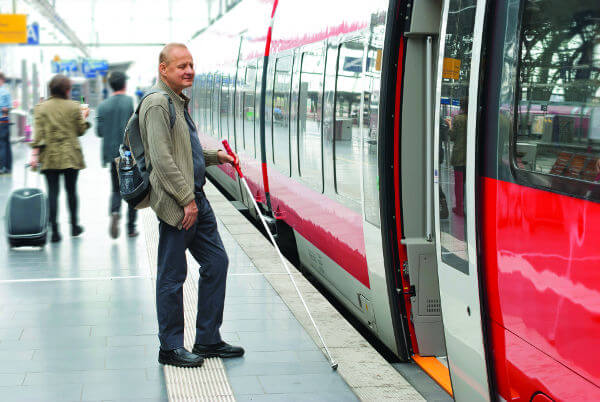
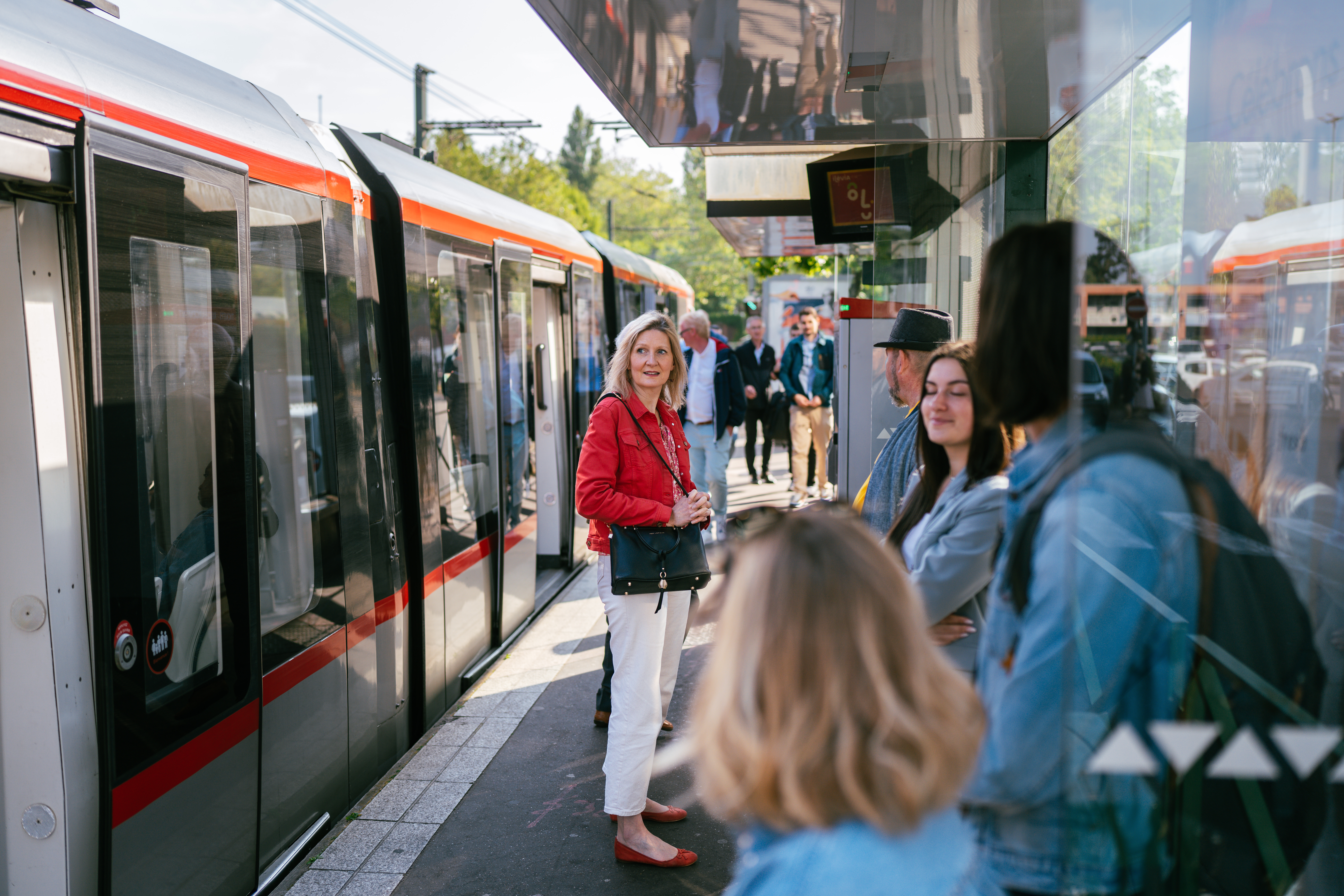
Keolis adopts a human-centered approach to offer inclusive mobility accessible to all. By drawing on mobility innovations and advanced technologies, the Group optimizes every stage of the passenger journey, from access to information to the on-board experience.
The goal is clear: to make mobility easier for PRMs and offer services tailored to the specific needs of each passenger, whether they are disabled, senior citizens, parents with strollers or occasional travelers.
Thanks to its solutions for accessible transport, Keolis is actively contributing to a more inclusive and supportive society.
Travel with peace of mind on all forms of mobility
The Group has deployed a number of accessible transport solutions in the regions in which it operates:
- Access to the Customer Relations Center is facilitated through partnerships with Elioz, Acceo and Roger Voice. These digital telephone accessibility services, available in person or remotely, enable deaf or hearing-impaired people to contact Keolis teams with ease. Today, more than 20 of our subsidiaries use these services.
- Guidance applications are developed and tested to support the specific needs of PRMs. In Bordeaux, London and Boston, NaviLens technology helps blind people move around independently thanks to augmented QR codes. In Besançon, the Ezymob application, designed with the support of local associations, uses artificial intelligence to improve the public transport accessibility (detection of vehicle doors and empty seats inside vehicles, audio guidance at complex interchanges to simplify transfers, etc.). Also in Lyon, the Evelity solution, developed by the company Okeenea, was tested in three complex metro stations to make navigation and wayfinding easier for all users. It offers interfaces, routes, and instructions tailored to each user profile.
- For passengers with motor disabilities, Keolis enriches its trip planners with data on road accessibility. In Lyon (Andyamo), Rennes (Handimap) and Tours (Streetco application), these mobility innovations can be used to recommend trips that are accessible from end to end, by integrating sidewalks, crosswalks and infrastructure.
- Finally, in Lyon, the "Stop Bus" pilot project enhances both the comfort and safety of visually impaired passengers by allowing them to request a stop remotely using their universal remote control or the MyMOVEO app. This means they no longer need to move to the stop button.
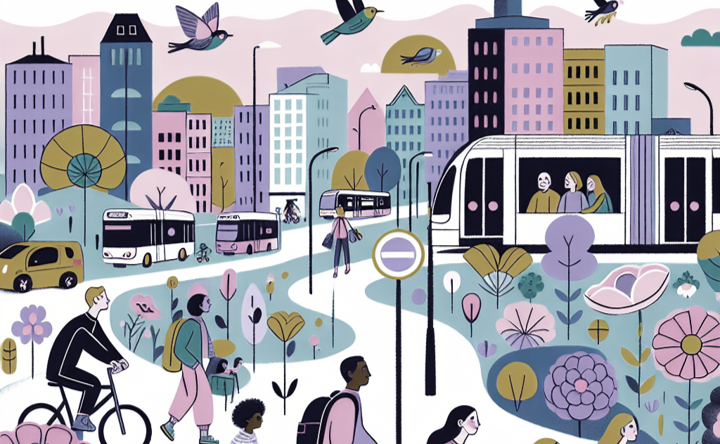
Other mobility players are also innovating to make their services accessible to all. In SNCF Transilien stations, indoor guidance and the Andilien application make it easier for passengers to get around the Île-de-France region. SNCF Connect’s Mon Assistant Visuel tool delivers real-time passenger information directly to smartphones. For its part, ChatGPT's fast-growing “vision” mode paves the way for AI-assisted voice guidance. Internationally, Glasgow Airport is expanding its partnerships with startups to rethink accessibility throughout the passenger journey. These are just some of the initiatives that inspire Keolis and fuel its vision of more inclusive and universal mobility.
Rethinking passenger information: towards clearer, more inclusive mobility
At Keolis, accessibility also means clear, contextualized and personalized information. Convinced that a thorough understanding of available services improves the mobility experience in a tangible way, the Group strives to provide each passenger with useful, understandable data tailored to their trip. In addition to timetables and routes, the information also takes into account determining factors such as the number of passengers on board, the working condition of elevators, comfort levels and access to transfers. The aim is to enable each passenger to choose the most suitable mode of transport, at the right time and in total autonomy, thereby enhancing the attractiveness of networks and regions.

Marie Gonzato Yahiel, Group Accessibility Manager - Keolis
"The Keolis Group has made accessibility and mobility for all a strategic priority, above and beyond the regulatory aspects. Accessibility is a tremendous opportunity to innovate, to provide greater comfort for all passengers and, ultimately, to build passenger loyalty."
Personalizing information for every traveler and making it accessible to all
Keolis focuses on personalizing services and information for each traveler, believing that mastering the information about available services and offers enhances the mobility experience and contributes to the vitality of a region. Beyond just providing information, Keolis meets the diverse needs of travelers by supplying all the necessary details to help them choose the best mode of transportation based on their journey and real-time travel conditions (crowding, onboard occupancy, functional elevators, onboard comfort, etc.).
